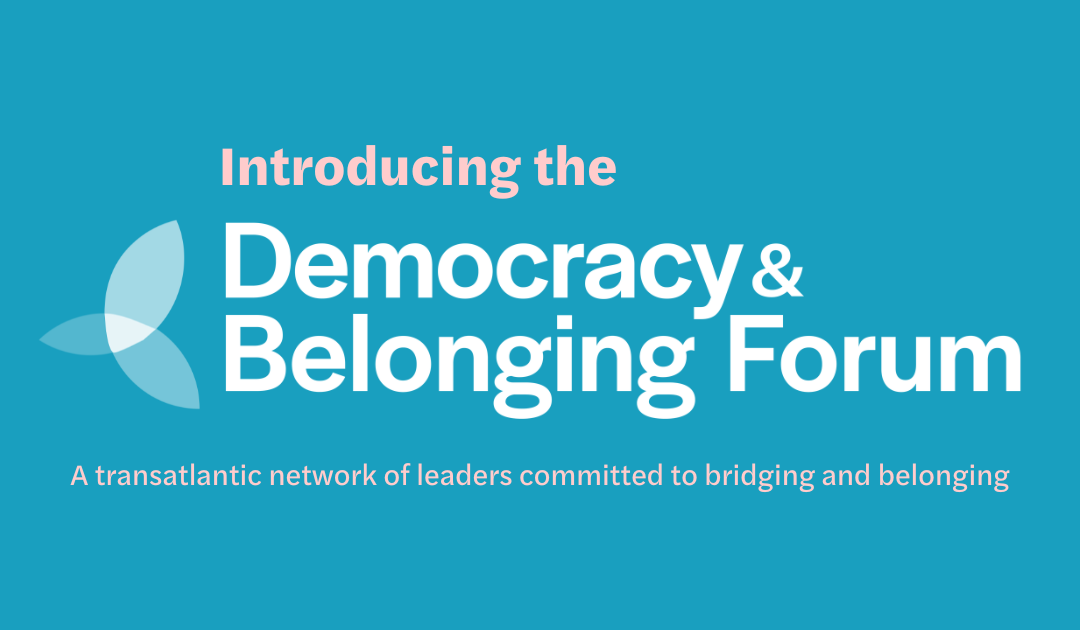Forum Launch
While many European citizens are responding to widespread disillusionment towards government by detaching from politics altogether, political entrepreneurs across the continent are using this opportunity to re-activate disenchanted voters through the strategic scapegoating of out-groups. This is a political strategy of polarization that may be useful for mobilization, but is detrimental to belonging and the structure that best supports it, democracy.
In France, for example, turnout in the country’s elections is reaching record lows. Ahead of the June parliamentary elections, More in Common/Destin Commun released a study that sheds light on the reasons behind abstentionism, identifying four types of reasons: 1) a loss of faith in politics (a feeling of powerlessness and uselessness of the vote), 2) the perceived dishonesty of politicians, 3) democratic shortcomings (administrative hurdles, lack of of information), and 4) the aggressiveness and politics-as-spectacle of the political landscape. This widespread dissatisfaction with politics is ripe for exploitation by extremist parties who are offering an alternative to the unsatisfactory “status quo,” often blaming a vulnerable minority group for political or economic woes.
Indeed, in many places, such disenchantment does not translate into boring campaigns but rather heated elections, as illustrated in the cases of Spain and Italy, both of which will have general elections next year. In Spain, Andalucía is heading into regional elections on June 19, where the extremist party Vox is making inroads. In another show of the well-documented cross-collaboration between extremist parties in Europe, Giorgia Meloni of Fratelli d’Italia—a party with neo-fascist origins in Italy—spoke at a Vox rally in Andalucía, shouting in a way that resembled the authoritarian speeches of yesteryear: “Yes to the natural family, no to the LGBT lobby, yes to sexual identity, no to gender identity [...], yes to the cross, no to Islamist violence” (min. 50). In the speech, she listed a catalog of groups she deemed as dangerous “others,” a tactic used successfully by autocrats throughout history to divide society and advance political goals, particularly during periods of high political dissatisfaction.
This creation of an “other” (a process we call “othering”) is both a strategy and a consequence of the rise in authoritarian populism, which has historically benefited from political disillusionment. Our answer to othering necessitates investing in belonging, which we achieve in part through bridging across differences. Bridging requires that we create space to hear and see each other, but in order for it to be effective it also needs to take power, structures, and identities into consideration. In his latest paper, john a. powell, Director of the Othering and Belonging Institute, tells us that “it is not the difference itself but how we individually and collectively make sense of the difference that provides social meaning.”
Ultimately, differences can be used to divide us, and scapegoating a chosen out-group is often wielded to make sense of an uncertain reality. But we can also make meaning of those differences differently, so that they are not a source of pain, anger, or disenchantment but rather contribute to greater belonging for all, including engagement in the core democratic political process that allow for the co-creation of our societies.
Connecting the Dots: Musings on Bridging and Belonging is a bi-monthly column by Míriam Juan-Torres. In it, Míriam reflects on current events, connecting the trends and considering the specificities across countries, applying a bridging and belonging lens and translating concepts from academia for a wider audience. In Connecting the Dots, Míriam carefully curates readings and resources to further expand our understanding and shed light on the complexities of our time. Join our mailing list to stay up to date on the latest of the Democracy & Belonging Forum's curated analysis from Miriam and more.
Editor's note: The ideas expressed in this blog are not necessarily those of the Othering & Belonging Institute or UC Berkeley, but belong to the authors.

